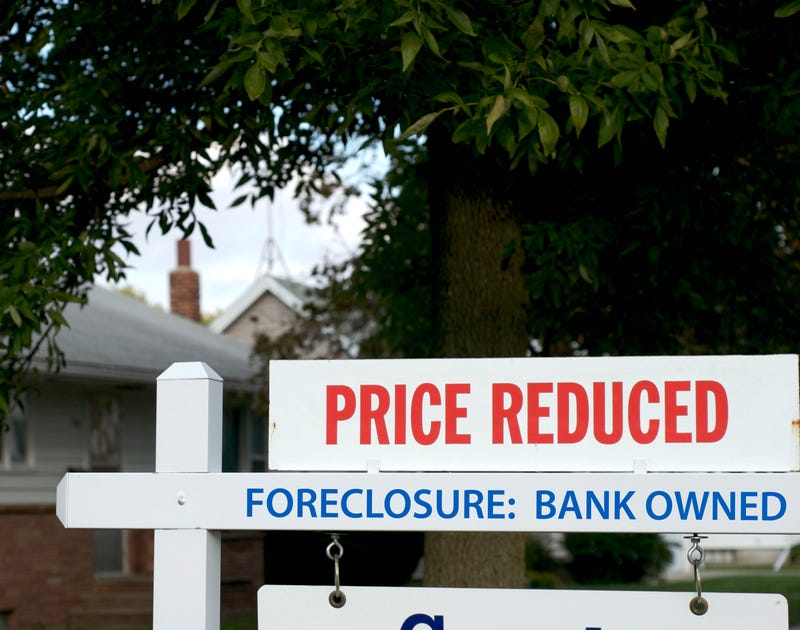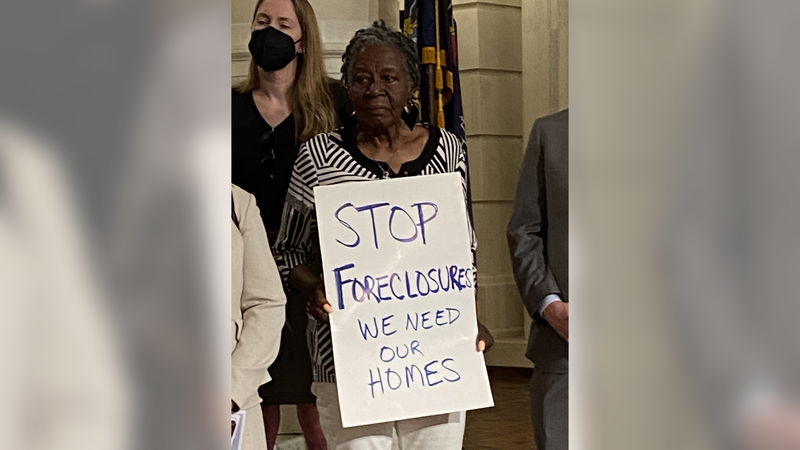
PHILADELPHIA (KYW Newsradio) — Deborah Brown moved into her Southwest Philadelphia row home 50 years ago. It was only the second move of her life, and she decided it would be her last.
“Once I got here, I said, ‘this is it,’” she recalled with a laugh.
Now she is facing the possibility that, at 80 years old, she may be forced to move again because her mortgage company is threatening to foreclose and the assistance she’s been seeking from the Pennsylvania Homeowners Assistance Fund (PAHAF) is stuck in a months-long backlog.
PAHAF received $350 million in federal funds to protect homeowners like Brown as the pandemic foreclosure moratorium ended in 2022, but the program was first bungled by an outside contractor and now is stymied by the measures the state is taking to try to get the program back on track.
“We had to really overhaul the entire program,” Robin Wiessmann, CEO of the Pennsylvania Housing Finance Agency (PHFA), told KYW Newsradio. “When they transferred over the applications, they actually had three times the applications they told us remained for processing.”
PHFA hired Innovative Emergency Management (IEM) in February 2022. One year later, Wiessman said it ended the contract when it became clear IEM was “not capable of administering the program quickly or effectively.”
But that meant the state had to re-register some 18,000 applicants so the state has the third-party authorization to communicate with each applicant’s mortgage holder, utility providers and taxing authorities. Wiessmann is trying urgently to get the word out.

“It’s very important that existing applicants access the new portal,” she said.
There are three ways to do so. One is to go straight to the website, pahaf.org. There is also a hotline, 888-987-2423, and 12 statewide events this month to take applications in person. Three of them are in our area:
— Coatesville City Hall, July 27
— The Enterprise Center on 52nd Street in West Philadelphia, July 28
— Philadelphia location TBD, July 29
No new applications are being accepted in the meantime.
Wiessmann said PHFA is also contacting courts that oversee foreclosures and sheriff’s sales to acquaint them with the program and ask them to give applicants more time to receive the help. She said mortgage companies are also familiar with the program and are being cooperative.
Brown, though, still has to worry. She applied for assistance in February when she was just one month behind on her mortgage. She recently received a letter from her mortgage company saying she faces foreclosure because she is now more than six months behind.
It would be an unthinkable turn for Brown, who has a lifetime of memories in her home. She and her husband raised their son there. Her husband took care of the upkeep.
“There are things in here that I remember him doing,” she said.
He died in 1994 and two years later, the house was damaged in a fire. Brown took out a new mortgage to make repairs. In 2018, she was diagnosed with kidney failure and forced to quit her job as a counselor and trainer at the behavioral health provider CATCH.
“I started falling behind in my bills because my income was more than limited,” she said. Her gas was turned off. She went on a payment plan for water and electricity but she kept up her mortgage.
When COVID-19 hit, her son lost his job and a few months later suffered a stroke. He is back in the home they moved to when he was just two years old, dependent on her for care.
She was hopeful when she applied for foreclosure prevention assistance. She has already filled out her new application. Now, she said she just wants to help others in her predicament. She attended a rally in Harrisburg last week where housing advocates asked PHFA to do more to get people re-enrolled in the program.
“Whatever goes on,” Brown said, “whatever transpires, whether I come out of this or not, I just want to be of service to those who are going through the same things I’m going through and hopefully will come out a little better.”


